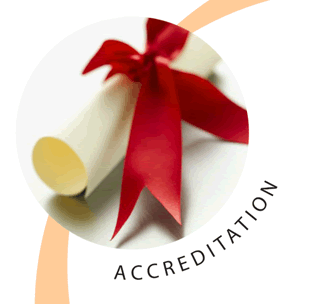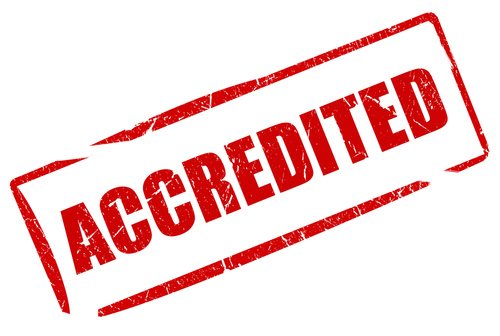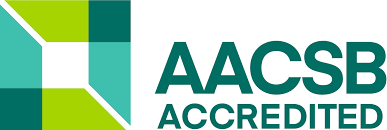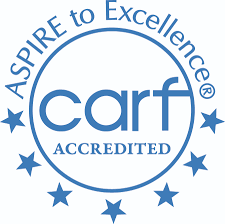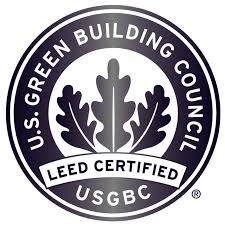- university
- school
- business
- the US Department of Education for public institutions
- the Council for Higher Education Accreditation (CHEA) for private institutions
ABET Accreditation
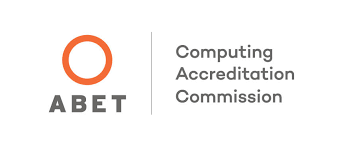 The Accreditation Board for Engineering and Technology accredits universities and institutions that have programs in:
The Accreditation Board for Engineering and Technology accredits universities and institutions that have programs in:
- applied science
- computing
- engineering
- engineering technology
ABET can accredit a program or an entire institution. Within the ABET there are four divisions that accredit individual programs. The Applied Science Accreditation Commission (ASAC) accredits applied science programs at the associate, bachelor or masters level. The Computing Accreditation Commission (CAC) evaluates and accredits programs at the bachelor level. The Engineering Accreditation Commission (EAC) accredits bachelor and masters level engineering programs and the Engineering Technology Accreditation Commission (ETAC) evaluates and accredits associate and bachelor level programs.
APA Accreditation
- clinical psychology
- counseling psychology
- school psychology
- specific institutions
- bachelor programs
- master level programs
ACICS Accreditation
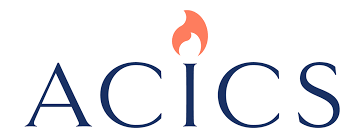 Accrediting Council for Independent Colleges and Schools provides a detailed and rigorous accreditation process for many:
Accrediting Council for Independent Colleges and Schools provides a detailed and rigorous accreditation process for many:
- colleges
- organizations
- nonpublic career schools
ACICS accredited universities list includes:
- CBT Technology Institute (Miami, FL)
- Gwinnett Institute (Orlando, FL)
- Beverley Hills Design Institute (Beverley Hills, CA)
AACSB Accreditation
- bachelors
- master’s
- doctorate level
WASC Accreditation
- public
- private
- religious and independent schools
- K-12 and adult schools that are non-degree granting schools
Better Business Bureau Accreditation
- advertising practices
- selling policies
- customer service
- build trust
- advertise honestly
- tell the truth
- be transparent
- honor promises
- be responsive
- safeguard privacy
- embody integrity
CCNE Accreditation
- bachelors
- masters
- doctorate level
CSWE Accredited
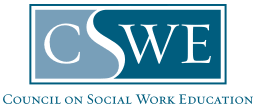 The Council on Social Work Education accredits works to identify standards for accreditation of competent social work programs in the university setting. The CSWE works closely with the Office of Social Work Accreditation (OSWA). The process involves on-site visits and self-studies.
The Council on Social Work Education accredits works to identify standards for accreditation of competent social work programs in the university setting. The CSWE works closely with the Office of Social Work Accreditation (OSWA). The process involves on-site visits and self-studies.
Accredited Chiropractic Schools
Chiropractic schools receive accreditation from the CCE, Council on Chiropractic Education. The CCE is able to accredit Doctor of Chiropractic programs that are within a larger school or university setting, or will accredit schools that are just Chiropractic schools. There are currently 15 accredited chiropractic schools in 18 locations in the US.
ACE Accreditation
 The American Council on Education is the most influential and well known higher education association in the United States. The ACE represents their members. This can be:
The American Council on Education is the most influential and well known higher education association in the United States. The ACE represents their members. This can be:
- colleges and universities with two or four-year degree programs
- graduate-level programs
- student financial aid
- research funding
- tax proposals
NLN Accredited Schools
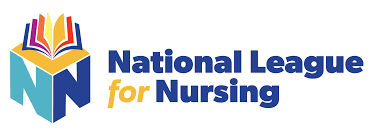 The National League for Nursing’s mission is to “promote excellence in nursing education to build a strong and diverse workforce to advance the nation’s health.” The NLN offers the CNE, or Certified Nurse Educators exam that individual nurses in education can take to earn their CNE certification.
The National League for Nursing’s mission is to “promote excellence in nursing education to build a strong and diverse workforce to advance the nation’s health.” The NLN offers the CNE, or Certified Nurse Educators exam that individual nurses in education can take to earn their CNE certification.
CARF Accreditation
- substance abuse
- home and community services
- retirement living
- improving services
- engaging client feedback
- serving the community
AIUM Accreditation
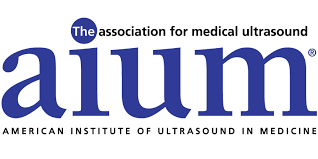 The American Institute of Ultrasound in Medicine accredits practices through a voluntary peer review process. The accreditation process allows providers to assess their own strengths and weaknesses and make voluntary changes to improve their practices. The areas of competency demonstrated by the AIUM accredited practices are:
The American Institute of Ultrasound in Medicine accredits practices through a voluntary peer review process. The accreditation process allows providers to assess their own strengths and weaknesses and make voluntary changes to improve their practices. The areas of competency demonstrated by the AIUM accredited practices are:- personnel education
- training and experience
- record-keeping
- policies and procedures regarding patient safeguards, personnel and equipment, instrumentation, quality assurance and case studies.
LEED Accreditation
- projects regarding sustainable site practices
- water efficiency
- energy and atmosphere credits
- renewable or low impact
- materials and resources being sustainable or renewable
- indoor environmental, which assesses air quality and access to natural light and views
CAHIIM Accredited Programs
The Commission on Accreditation for Health Informatics and Information Management Education’s mission is to set accreditation standards for health information and management educational programs. The CAHIIM accredits associate and bachelor programs at universities throughout the US.
SACS Accreditation
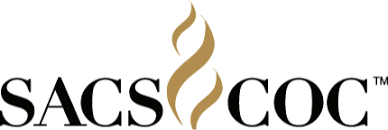 The Southern Association of Colleges and Schools works with universities in the Southern US by promoting educational growth and improvement in their accredited institutions. The states served by the SACS are:
The Southern Association of Colleges and Schools works with universities in the Southern US by promoting educational growth and improvement in their accredited institutions. The states served by the SACS are:
- Texas
- Louisiana
- Mississippi
- Georgia
- Florida
- Tennessee
- Kentucky
- Virginia
- North Carolina
- South Carolina
- Latin America
Colleges that offer Associates, Bachelors, Masters, and Doctorate degrees are all eligible for accreditation through the SACS.
NAEYC Accreditation
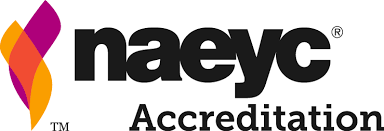 The National Association for the Education of Young Children focuses on raising the quality of education for children ages birth to eight years of age. The accreditation process recognizes excellent early education programs. NAEYC partners with:
The National Association for the Education of Young Children focuses on raising the quality of education for children ages birth to eight years of age. The accreditation process recognizes excellent early education programs. NAEYC partners with:
- ECADA (Early Childhood Associate Degree Accreditation)
- NCATE (National Council for Accreditation of Teacher Education)
They accredit associates and bachelor and graduate programs that train early childhood educators.
DETC Accreditation
- high schools
- colleges
- vocational training institutions.
- volunteerism
- self-regulation
- institutional self-improvement
- respect for the uniqueness of institutions
- excellence in student services
- fairness and transparency in decision making
- responsiveness to the dynamic, global distance education community
ABHE Accreditation
 The Association for Biblical Higher Education is the governing body for Bible based higher education. The ABHE is recognized by CHEA as a national accrediting body for all post secondary degrees, including graduate degree programs. The goal of all institutions accredited by ABHE is to prepare students for Christian ministry through:
The Association for Biblical Higher Education is the governing body for Bible based higher education. The ABHE is recognized by CHEA as a national accrediting body for all post secondary degrees, including graduate degree programs. The goal of all institutions accredited by ABHE is to prepare students for Christian ministry through:
- Biblical
- church vocational
- general studies
Accredited Medical Schools
Accredited Paralegal Programs
Paralegal programs are accredited through the ABA, the American Bar Association. The ABA sets the standard for required education and ABA accredited schools use the most up to date and relevant curriculum.
The National Association of Legal Assistants does not offer accreditation. It does offer a certification for legal assistants or paralegals, which is a voluntary process.
Accredited Pharmacy Schools
The Accreditation Council for Pharmacy Education (ACPE) is the national accreditation board for all graduate level pharmacy programs. ACPE also is responsible for many continuing education opportunities for pharmacists and assistants. ACPE works closely with:
- American Association of Colleges of Pharmacy (AACP)
- American Pharmacists Association (APhA)
- National Association of Boards of Pharmacy (NABP).
The NABP is a professional organization that works with the state boards of pharmacy to ensure quality standards and protect public health. The NABP accomplishes their task primarily through:
- competence assessment programs
- licensure transfers
- various accreditation programs that are available to individual pharmacists
Nursing School Accreditation
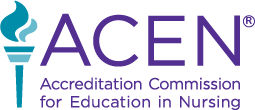 Nursing schools in the US are accredited through either the Accreditation Commission for Education in Nursing (ACEN); or the Commission on Collegiate Nursing Education (CCNE), as described above. ACEN accredits nursing programs that offer postsecondary degrees or higher, and offer a certificate, diploma or advanced degree.
Nursing schools in the US are accredited through either the Accreditation Commission for Education in Nursing (ACEN); or the Commission on Collegiate Nursing Education (CCNE), as described above. ACEN accredits nursing programs that offer postsecondary degrees or higher, and offer a certificate, diploma or advanced degree.
Accredited Business Schools
Business schools are most likely to be accredited through the AACSB, as described above. Currently nearly 700 institutions worldwide have achieved this accreditation. The Accreditation Council for Business Schools and Programs (ACBSP) is another accreditation that a business school may obtain. ACBSP accredits accounting, business, and business related programs worldwide at level including:
- associates
- bachelors
- masters
- doctorate degree level
Middle States Commission on Higher Accreditation
 MSCHE accredits institutions of higher education that offer one or more postsecondary education programs. Locations include:
MSCHE accredits institutions of higher education that offer one or more postsecondary education programs. Locations include:
- Washington, DC
- Delaware
- Maryland
- New Jersey
- New York
- Pennsylvania
- Puerto Rico
- Virgin Islands
Accredited Nutrition Programs
Accreditation Council for Education in Nutrition and Dietetics was previously known as the Commission on Accreditation Dietetics Education. It is responsible for accrediting education programs that graduate students who desire a profession as a registered dietician (RD), or registered dietetics technicians (DTR). The ACEND assures that the education programs are continually improving and meeting the health needs of the public.
Another accrediting board in the nutrition field is the ACBN American Clinical Board of Nutrition is accredited by the National Commission for Certifying Agencies (NCCA). The NCCA offers the status of Diplomate to all professionals in the healthcare field that is beyond the doctorate level both in the United States and Internationally.
Higher Learning Commission
The Higher Learning Commission is an accrediting organization for post secondary educational institution.
Examples of HLC accredited schools include:
- Marquette University, Wisconsin
- Colorado State University, Colorado
- Chicago Academy of Fine Arts, Illinois
